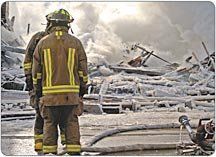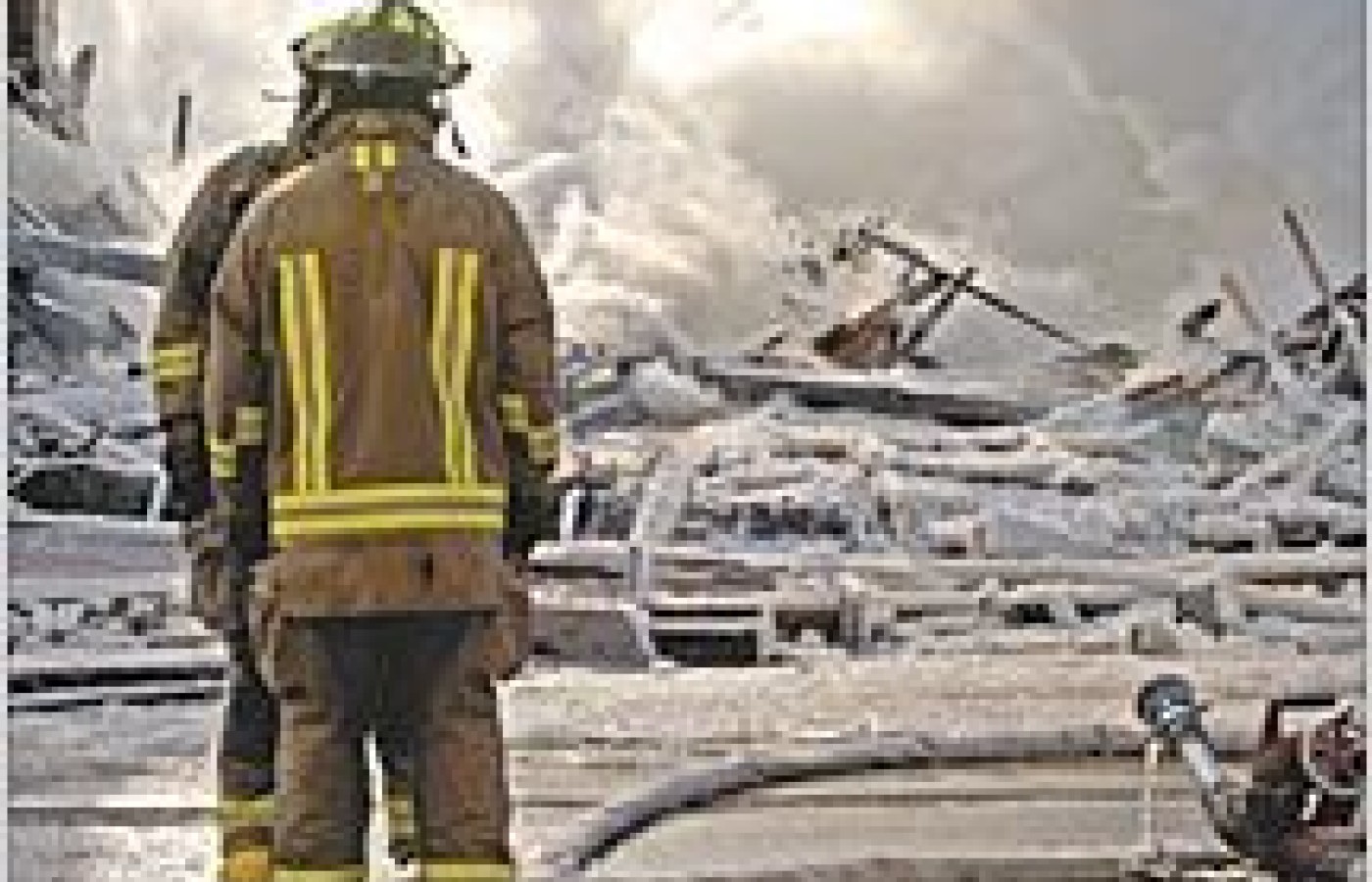The most important relationship I seek to nurture in the treatment room is the one a patient has with their own body. We live in a culture that teaches us to override pain, defer to outside authority, and push through discomfort. Patients often arrive hoping I can “fix” them, but the truth is, we can’t do the work for them. We can offer guidance, insight and support, but healing requires their full participation.
Healing Old Wounds With Acupuncture
Without a doubt, the events of 9/11 were among the most shocking and traumatic in U.S. history, particularly for residents of New York City. For some residents, the road to recovery has been a long and painful one. In response to this ongoing need for trauma care - even seven years later - a group of New Your City acupuncturists has banded together to try and get auricular acupuncture included as a benefit through the New York City Department of Mental Health & Hygiene.

Wendy Z. Henry, LAc, ADS, with the Acupuncture Society of New York (ASNY) is spearheading this effort. She has a great deal of experience with using auricular acupuncture to treat posttraumatic stress disorder (PTSD), anxiety, addiction and other consequences of extreme trauma. As one of the members of Community Relief & Rebuilding through Education & Wellness (CRREW), she helped victims of Hurricanes Katrina, Rita and Wilma through a program called the "9-11 Mental Health and Substance Abuse Benefit."
Through this program, the hurricane victims, if they had no other coverage, could receive treatment through the Red Cross. That program allowed for 32 mental health treatments, which included acupuncture. Although it ended in December 2007, the New York City Department of Mental Health & Hygiene is launching a program with the same name to aid victims, specifically residents of New York City ( www.nyc.gov ). This new program does not include auricular acupuncture.[PB]
In a press release, ASNY quoted part of the department's initial response to the request to include auricular acupuncture:
"While we understand your belief in the usefulness of acupuncture, when developing this benefit program, the Department of Mental Health & Hygiene decided to cover only services for which there was evidence of effectiveness in peer-reviewed scientific literature for treating PTSD, depression or problematic substance use, the psychological conditions most prevalent among people who were directly affected by the terrorist attacks on the World Trade Center. Appropriate use of taxpayer dollars requires this standard.
"Peer-reviewed scientific literature does not support the use of auricular acupuncture as an effective treatment for PTSD, depression and problematic substance use. Though there was little evidence of harm or of substantial side effects associated with auricular acupuncture in the literature search that yielded 12 relevant studies published since 1998, which are attached to this email, there also was little evidence of relevant benefit. We offer these studies as objective evidence in support of the Department's judicious use of municipal funds."
Henry is heading up a drive to provide the Department of Mental Health & Hygiene with testimonials, abstracts and letters to show support for the inclusion of acupuncture in the program. Henry explained, "It would be tremendous if we could break into a city program. We need to make this into an opportunity."
Henry stressed that this treatment could be an adjunct to traditional pharmacological methods for treating PTSD and other anxiety and depressive symptoms of trauma. "Patients have the choice of acupuncture treatments either with Western medicine or as an alternative entirely."
She is asking that abstracts supporting the efficacy of auricular acupuncture for treating trauma victims, as well as testimonials from those NYC residents directly affected by the events of 9/11 be sent to her at acupuncturemobile@yahoo.com . Patient letters of support for inclusion of acupuncture treatment should be addressed directly to:
Commissioner Thomas R. Frieden, MD, MPH
NYC Department of Health and Mental Hygiene
125 Worth St., 3rd Floor, Room 331 CN38
New York, NY 10013
and
Joanne McLean, Director
9/11 Mental Health and Substance Abuse Program
NYC Dept. of Health and Mental Hygiene
93 Worth St., Room 1212
New York, NY, 10013
There is also a petition to Frieden and McLean, which Henry will send out upon request. It reads, in part:
"The '9/11 Mental Health and Substance Abuse Benefit' that was funded through Red Cross resources included auricular acupuncture as a covered benefit. Unfortunately this benefit ended Dec. 31, 2007. In addition other programs which offered the auricular acupuncture have been discontinued as funding has run out.
"As part of our own healing process as people directly impacted by the events of 9-11 we have discovered the acupuncture to have been highly effective in helping us with improved sleep, reduction in anxiety, reduction in cravings for alcohol and other substances and has helped us feel more calm. Other positive benefits have also been noted. We have also noticed the positive changes in others who have received this treatment.
"Having this benefit extended to include acupuncture coverage would enable us to continue treatment when we experience the need. Experiencing acupuncture, a non-verbal treatment method, has often prepared us to have more productive counseling sessions for those of us who have also chosen a more traditional counseling approach."
One testimonial comes from NYC acupuncturist Biana Beldini, LAc, who literally had just started acupuncture school the day before 9/11. She shared her personal story with Acupuncture Today :
"I was afraid to leave my home, as I had become agoraphobic. I needed coaxing to get me out of the house. Any loud noise coming from outside the house (e.g., a car backfiring, dump trucks picking up garbage, the roar of engines from planes in the sky) would put my nervous system into overdrive and I would begin shaking. ... Driving through tunnels or being underground on a subway was almost impossible for me, as any slight noise would trip my switch and I would suffer a panic attack that would feel as if my heart was going to beat right out of my chest."
After receiving one acupuncture treatment, she noticed results very quickly thereafter:
"I woke up the next morning, and for the first time in three months since my journey had begun, I actually felt my feet on the floor. I felt connected."
It also is Henry's hope to be more connected, particularly with the health care field in New York City. "I hope that we can gain entry into more mental health service environments. Hopefully, they will see the validity of both an individual and a group benefit to acupuncture treatment."



